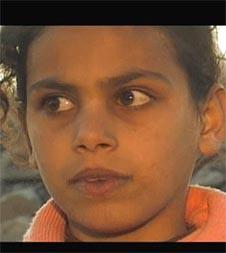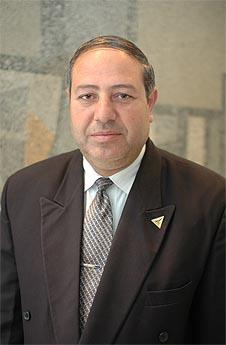Gaza’s Children
The orphaned children of Gaza are the big losers. – These children suffer from psychological traumas after many years of warfare. They have nightmares, are nervous and are left to fend for themselves, according to Professor Neamat Shabban Alwan of the Al-Aqsa University.
Main content
27th December 2008: The Israelis bomb Gaza. A fragile cease-fire agreement between Israel and Hamas is broken and they haven’t managed to agree on a new treaty. War rages for the next 25 days. 1400 Palestinians and 13 Israeli soldiers were killed, according to the UN. 1350 children were orphaned in a war that shocked most of the world.
Professor Neamat Shabban Alwan has worked with the traumatised children of Gaza for more than 15 years. His colleagues have gone into the ruins, and fetched children away from the dead bodies of the parents and siblings.
– These children struggle with psychological traumas caused by the many years of war. They have nightmares, are nervous and are afraid of the dark, and often wet the bed during the night. Many become withdrawn and lonely, says Alwan. He is Professor in mental health at the Al-Aqsa University in Gaza and has a doctorate in psychology from the same university.
He was in Bergen last week to highlight the plight of these children.
The boy with staring eyes
Professor Alwan has for the past 15 years, worked with the psychologically traumatised children of Gaza and also studied these children. There are at present 780 children in the programme.
– Childhood is difficult in Gaza, especially for those children that have been orphaned. They have nothing. No medicine, no home and few clothes and belongings, and they also lack psychological support, says Alwan.
He will never forget the boy they found just after Christmas in 2008, during the bombing of Gaza. The eight year old was found sitting beside his dead mother in the ruins of their home. He had been there for three days and had lost the ability to speak by the time he was found.
– He was extremely nervous and slept with his eyes open, says Neamat Shabban Alwan.
He couldn’t at first remember what had happened when his mother was killed. But the memories eventually came back.
– He has received treatment for one and a half years now, and things are getting better. He lives in one of Gaza’s ten SOS Children’s Villages and has begun to speak and play, but it has taken a long time for him to get this far, says Alwan.
Lacking everything
Not all children get the help they need. It’s not possible to help everybody as there are so many who have lost everything in Gaza. Approximately 20.000 children have been orphaned since 1987. More than 75 percent of the children in Gaza are undernourished, according to Alwan.
– We have undertaken a difficult job, says the professor from Al-Aqsa University, with tears in his eyes.
– There are so many children that have so little. We do everything we can to help them, but these children are faced with both economic and psychological challenges. They are poor and have no parents to protect them. But that’s life in Palestine. My job is sad and frustrating, but the smiling faces of the children who have been helped, make it all worthwhile, says Alwan.
A generation marked for life
He says that about 54 percent of Palestinian children between 6 and 18 years of age have experienced at least one traumatic episode. The professor fears for the future of these children. He believes that they will be unable to forget the tragedies they have experienced, and that a whole generation will be marked by childhood insecurity.
– The situation will of course have an effect on the children when they become adults. They grow up with violence, and they will be marked by it. But we are trying to remove the negative feelings, so that it will be easier to carry on with life, says Alwan.
– The children grow up without parental support, but we hope they will have better lives in the future although it looks as though that might prove difficult to achieve, says Professor Neamat Shabban Alwan.

